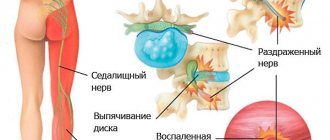Now everyone knows that people have complexes. Not so well known, although much more important from a theoretical point of view, is the fact that complexes can possess us.
Jung. Review of complex theory
The term complex comes from the Latin complexus
- connection, combination.
This Latin term has been used for a very long time, including in medicine, for example, complex of symptoms
.
The idea of using associations
to explain mental processes was so popular in the 19th century that a whole direction arose -
associative psychology
, which studies
complexes of ideas
, the roots of which go back to the 18th century. to the philosophical works of David Hume.
The merit of psychoanalysis is not the introduction of the term complex
, and not the use
of associations
to explain mental activity, but the creation of
a new method of treatment
as a result of the study of complexes.
What are complexes
Complexes in psychology are mental processes that are formed in the unconscious and affect the development of the psyche. The concept of “complex” was introduced into scientific literature by S. Freud’s student, Carl Gustav Jung.
The complex can be compared to a pain point. This is always some kind of shortcoming, real or imagined, which in a person’s mind is exaggerated to the maximum. For example, the most common of them are a big nose and crooked teeth. A person may have an absolutely normal appearance, but in his perception it is distorted.
The complex may not necessarily be caused by appearance. Character traits and painful attachment also become the cause of their occurrence. For example, an inferiority complex, a victim.
In Ozhegov's dictionary
COMPLEX, -a, m. 1. Set, combination of something. K. machines. K. representations. 2. A set of interconnected sectors of the national economy or enterprises of various sectors of the economy. Agro-industrial complex. Territorial-production complex. Military-industrial complex. Fuel and energy complex. 3. Group of buildings and structures for a single purpose. Architectural, animal husbandry, sports, tourism * Inferiority complex - a painful awareness of one's shortcomings, inferiority in some way. respect. With a who complex (colloquial) - about someone who is painfully dissatisfied with something. in yourself. Without complexes who (colloquial) about who is normal, confident. || adj. complex, -th, -oe (to 1 value). Comprehensive production automation. * Complex (complex) number (special) - the sum of real and imaginary numbers.
What types of complexes are there?
All complexes can be divided into 2 groups:
- Physical (regarding height/weight/appearance/voice, etc.);
- Mental;
Mental complexes - dissatisfaction with the state of society, discrepancy between one’s expectations from life and reality, etc. They largely manifest themselves in relationships with people. It’s easier with physical complexes: a person is embarrassed by his appearance, weight, skin color. They are caused by both beauty standards imposed by society and real problems (disability, speech impediments, etc.).
Victim complex
On your life's path you will meet at least one person who constantly becomes poor and arouses pity for himself. At first you think: “how cruel fate is towards him, he should be pitied.” Then you notice that the person is deliberately repeating the same scenario. The victim does not seek to get out of his situation.
Why? Because it's profitable. They are pitied and attract a lot of attention with their behavior. The victim complex usually affects orphans or children who did not receive enough parental attention. Or whose parents were too strict. They try with all their might to evoke pity and compassion. But they never make any attempt to change their life for the better. Because subconsciously they do not want to leave the victim state.
Napoleon complex, growth complex
The short man complex or Napoleon complex is one of the most famous. It appears when a person of short stature tries in every possible way to compensate for his shortcomings. Increased aggression, flashy wealth, etc.
Girls, on the contrary, have a complex about being tall. Everything is connected with stereotypes imposed in society: “a man is tall and strong, and a woman is weak and defenseless.”
Age complexes
Concerns about age are more common among women. Middle-aged ladies are embarrassed by their age and try in every possible way to hide it. As one of the manifestations of the complex: a woman wears short skirts, unfashionable teenage clothes, looks vulgar and inappropriate. It also manifests itself in behavior and speech.
In men, age complexes manifest themselves differently. Due to the fact that by a certain age a man has not been able to build a career and start a family, he falls into depression and apathy.
What does messianic complex mean?
The Messiah is a savior, a spiritual leader. A person’s desire to help all those who suffer, to save everyone and everyone from themselves is a messianic complex, a savior complex.
A girl chooses marginal men for herself and believes that they will change with her - this is a clear manifestation of the savior complex. The complex occurs in romantic relationships and friendships. A man is more inclined to “save” materialistic friends or manipulative parents.
Electra complex and Oedipus complex
In child psychology there are 2 common complexes: Electra and Oedipus. This is the attraction of a daughter to her father (Electra), and the attraction of a son to her mother (Oedipus).
The differences between the two conditions are not significant. In both complexes, the child wants the parent of the opposite sex to belong only to him. Electra is jealous of her father for her mother, and Oedipus is jealous of her mother for her father. At the same time, the child experiences complex remorse for his feelings.
The condition does not disappear with the transition to adulthood, but is aggravated by sexual problems. To the point that the child is looking for a partner similar to his father/mother.
The meaning of the word Complex according to Ushakov’s dictionary:
COMPLEX , complex, m. (Latin complexus, lit. plexus). 1. A set, a combination of phenomena or properties. A complex set of social relationships. A complex of painful manifestations. Complex of representations. 2. (strike only complex). A teaching method that consists in the fact that primary education subjects are not taught separately from each other, but together, in a common connection (new pedagogy). 3. A set of sexual ideas that unconsciously manifest themselves in a person’s mental structure (Freudian term, med., psych.). complex .
Why complexes arise
The causes of complexes are divided into several groups:
- traumatic experience (insults, bullying, psychological pressure);
- unhealthy relationships with parents (overbearing single mother, strict father, development in a single-parent family);
- stereotypes, social pressure;
- psychical deviations.
People with active mental disorders are more prone to developing complexes than mentally healthy people.
Where do complexes come from?
In adulthood, complexes are rarely formed. More often it is a relic of adolescence, which a person could not get rid of in his conscious years. If childhood and adolescence were painful, a person is likely to carry several complexes into adulthood.
How to understand that a person has complexes
If a person constantly worries about a problem, it is not easy to hide it. It reveals everything: from appearance to timbre of speech, random phrases in a conversation. We have collected 5 obvious signs that a person has complexes:
- Focus on the problem.
- An appearance that attracts a lot of attention.
- The habit of excessively complaining or praising oneself.
- A man talks only about himself.
- Asks for compliments.
When a person constantly talks about a shortcoming that is invisible to others, it immediately reveals complexes.
Causes and appearance
The main causes of the complex are traumas and problems in the past and the associated emotions, sensations, thoughts and means of defense against pain. Sources of incorrect self-image are:
- family;
- Friends;
- society;
- important people;
- experience.
In childhood, a child perceives all the information that he receives from the world around him, so at this age he cannot think critically, and any negative opinion said about him is stored in memory and forms a complex. This psychological problem can remain with a person forever, even if she realizes that this is not so and wants to get rid of it. In addition to their occurrence at an early age, a negative opinion about oneself is fixed deep in the mind and affects the psyche of the individual.
However, psychological complexes can be not only negative. If an opinion is created around a positive effect, then the reaction to it will be positive.
How to get rid of complexes
An experienced psychotherapist will make it easier to get rid of complexes. It is almost impossible to do this on your own, because you do not know what shaped the development of your complex. We cannot look at our lives objectively. Therefore, each psychologist has his own psychologist.
Why are complexes dangerous?
Society doesn't like people with complexes. They attract the same complex people. For example, the common pair “victim + savior”. Such relationships do not end with a happy ending. Complex people rarely achieve success in life. More often they cannot build healthy relationships with others and create a full-fledged family.
Is it necessary to fight complexes?
Putting up and living side by side with complexes is harmful. This has a significant impact on your self-esteem and psyche. Each complex requires its own approach. It is impossible to get rid of everyone at once. You need to deal with problems consistently and gradually so that they do not turn into a serious obstacle to a happy life.
In the dictionary Dictionary of foreign words
a, m.
1. A set, a combination of something K. mechanisms. K. exercises. Complex - being a complex.
2. A set of interconnected sectors of the national economy. Fuel and energy plant
3. A group of buildings and structures for a single purpose. Architectural k. Sports k. Inferiority complex - painful awareness of one's own shortcomings. With a complex (colloquial) - about someone who is painfully dissatisfied with something in himself. Without complexes (colloquial) - about someone who is overly self-confident, does not have any doubts about his own qualities.
Share the meaning of the word:
How is the idea of one’s own inferiority formed?
If you dig deeper, the most basic emotion on which this deviation is based is fear. Of all the feelings, it is he who occupies the dominant position in infancy. A child who is not fed on time thinks that he will die without food, he is controlled by fear, and therefore he screams and bursts into tears. Years go by, and now the baby becomes a teenager. And during this period in his life, moments of weakness, confusion, loneliness appear from time to time, and incidents may also occur that contribute to a loss of self-confidence. This is how a teenager develops an idea of his own inferiority. If his mother or father often criticize him, emphasizing his inferiority, then the complex completely takes over him, and the person may not get rid of it until his death. Of course, his life itself becomes flawed. However, knowing what a complex is, you can try to get rid of it; Often a psychologist can help with this.
Classification
It is quite problematic to provide comprehensive information about all disorders. The only thing that can be done is to collect them according to classification.
- The first type is age complexes that appear at different periods of life and personality development.
- Social ones mostly arise in countries where society is divided into layers. Considering the behavioral characteristics of people from different countries, they argue that social complexes are characteristic of people all over the world.
- Physical are associated with injuries to the human body: congenital or acquired.
- Author's concepts regarding complexes. Here we mean descriptions of complexes according to Jung, Adler, Freud, which are based on the opinion of a psychologist.
Depending on the impact they have, problems are divided into positive and negative. Positive complexes force a person to improve himself, while negative complexes cause a storm of negative emotions that provoke stress and serious psychological problems. In addition, human complexes can be directed at the outside world and at the inner “I”.
Remedies and tips
Human complexes: manifestations and ways to eliminate them - this topic is studied by the science of psychology. After all, any mental deviations from the norm are born primarily in the head, firmly fixed in the psyche and behavior, affecting all life activity as a whole.
Psychology as a science is divided into many schools, each of which has its own methodology, tools and distinctive approach to working with the mental component of the individual. Let's list some of them :
- Gestalt therapy is a psychological direction interested in human feelings and their expression, its creative adaptation in the world. By recognizing one’s feelings and sensations, accepting them and spontaneously expressing them, a person ensures a fulfilling life without neurosis.
- Cognitive psychology works with human thinking - cognitions. Destructive attitudes, thoughts and fantasies of an individual sometimes make his life unbearable, provoking loneliness, depression and suicidal tendencies. A cognitive psychologist helps the client expand his worldview and look at his picture of the world from a different angle, without complexes.
- Art therapy also gives an individual the opportunity to look at his life from different sides, helps to gain the experience of creative expression of himself through drawing, sculpting, and playing games. By living new experiences in games, a person gains confidence and then transfers this experience into his life.
All psychotherapy, any of its types and directions are built on awareness and acceptance of oneself, one’s undesirable sides. Character traits and characteristics that are associated in a person with pain, shame, and the inability to “digest” them deprive the individual of a full existence and the joy of being.
A person without a complex is a person free in his expression, accepting his positive and negative sides, consciously living any experience. Such a person does not avoid reality, does not embellish it with rose-colored glasses, and does not see what is not really there.
Standard list of exercises for weight loss
Light exercise, walking at a brisk pace, calm running and measured swimming for 45-60 minutes - this is a typical list of weight loss exercises that are simply irreplaceable for obese people. All this helps to achieve the goal. Those who want to lose weight should understand that swimming has an important advantage: a certain amount of energy is expended as a result of movement, but weight loss also occurs due to the fact that the body constantly strives to maintain an optimal body temperature, and as a result, a little more fat is burned.
Now you know what the complex is. This word will no longer confuse you, it has become extremely clear to you.
How does this deviation manifest itself?
In order to assert himself, a person begins to try to be better than others in everything and strives by any means to emphasize his own superiority. If you follow the actions of people under the yoke of an inferiority complex, their abnormal timidity, constant fear and excessive sensitivity become obvious. Life is very difficult for them. Such people often suspect that someone is secretly mocking them; they are very suspicious and tend to take everything personally.
This is what a complex is. This is truly terrible, you wouldn’t wish this on anyone.
Sources of origin, causes of human complexes: examples
Such attitudes are formed in childhood. Their emergence and development is facilitated, first of all, by the child’s immediate environment. Being children and not yet having highly developed analytical abilities, we, like a sponge, absorb everything that, one way or another, concerns us and put it aside on a subconscious level. After reading the following text, you will most likely remember what from the past could so significantly influence your worldview in the future.
Parents
It is in the family that the foundations of self-esteem are born. The baby catches every remark, reproach, demand, praise or request addressed to him. He completely and completely trusts the opinions and assessments of adults. If you try, you can easily remember the characteristic phrases that you heard addressed to you at a young age. For example, a girl who was often compared with others, singled out from everyone else, and had hopes placed on her, may in the future suffer from the “excellent student” syndrome (we’ll talk about it below).
Consciously or unconsciously, parents always transmit to their child a whole series of guidelines, attitudes based on their plans and expectations, as well as ideas about what is right and what is wrong.
Friends and Society
By interacting with other people, a person forms an opinion about himself. Assessment of the environment becomes especially important during adolescence. The attitude of acquaintances, peers and adults directly affects the subconscious of a teenager. Many failures are perceived painfully by them, and if instead of support they are faced with ridicule or moralizing, in place of these negative emotions a feeling of their own inferiority will arise.
Personal experience
Daily events directly affect the perception of oneself and the world. Complexity is formed along with inadequate self-esteem, when an individual does not understand how to relate to himself and perceive the behavior of others. Often, as a result of certain factors, he feels like a failure and holds this belief for many years.











